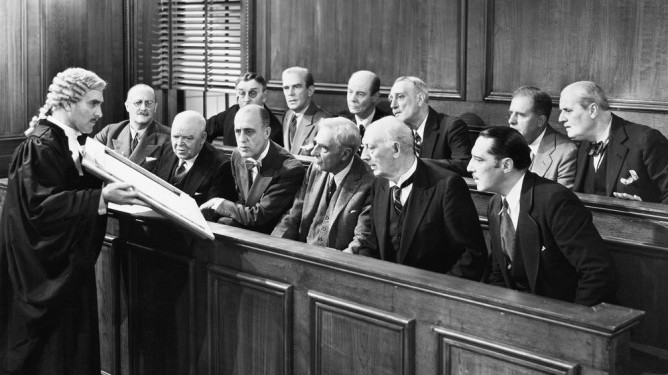Much of what we lawyers spend time litigating (or arguing about) for months and years ultimately ends up not mattering at all to a jury. There are many reasons for this, including:
1. We lawyers were taught to dissect issues, focus on details and pay attention, at times, to procedure over substance;
2. Because we are advocates and exposed to cases every day of our lives, we lose our objectivity; and
3. We often think we are smarter than we really are.
More often than you might realize, a jury will focus on something that we lawyers thought minor (or that we missed altogether), and they’ll pay no attention to other things, like the ones we thought mattered the most when we were arguing with the other side or preparing our trial presentation. It’s surprising what will capture the jury’s scrutiny sometimes, but that’s the way the human mind (and the jury system) works. And if we always knew exactly what the jury would think, well, we wouldn’t need lawyers anymore, would we?
Jury research is a practice that helps lawyers more accurately understand what matters to a jury. It’s like a focus group for trials, the goal of which is to closely observe human thinking and behavior and to recognize what resonates most with jurors.
Jury research provides a more strategic and efficient service for clients
When we lawyers dedicate extra time and work to performing jury research, we’re able to approach a case in a way that maximizes the outcome for ourselves and for our client. We can more confidently advise clients who are wondering whether to settle their case or go to trial, and we can operate much more strategically in either situation.
Clients also reap the benefit of having a more realistic lawyer. As much as anyone who has suffered an injury wants to hear they’ll be fully compensated for their hardship, I have found that most clients prefer to hear that only if true. In other words, we can only get close to making a fair and educated prediction about what a potential jury will do by replicating actual jurors and presenting the case to them. Each case and each client is too unique to find reliable information otherwise.
Jury research makes for a more prepared and impactful lawyer
A legal career is a lifelong commitment to research and understanding. So it makes sense that we should incorporate jury research as a regular, ongoing practice. Dozens of industries engage in this kind of dedicated focus group preparation, because they recognize the immense value of studying diverse perspectives. And if those perspectives have the power to change the course of an individual’s life—as they do in the case of trials—then we better pay attention to them.
Even though jury research seems like just good common sense—just go ask the potential jurors what they think!—it is a relatively new undertaking for most lawyers. There is so much that can be learned. There is both science and art to the proper preparation, presentation and analysis of any good jury research. Bob and I are excited to dive deeper into jury research in the coming months. We’ll be soliciting participants for jury research projects, working with research consultants, and studying the results to learn everything we can. We hope this analysis will prepare us to be a strategic, efficient, and impactful partner for our clients.









